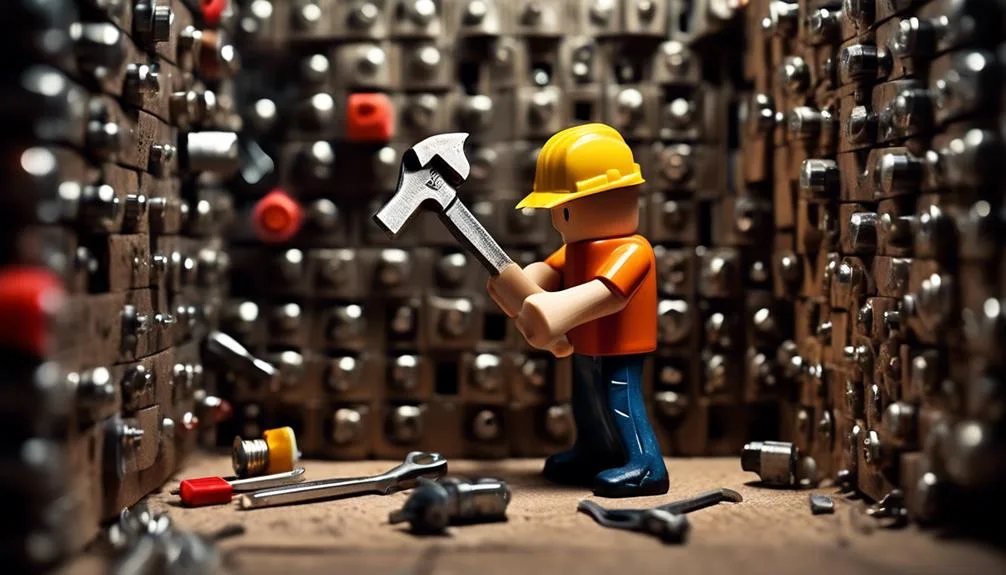Have you ever considered the underlying forces that shape your thoughts, emotions, and actions? It's intriguing to think about how certain beliefs can either propel you forward or hold you back in life.
But what if there's more to it than meets the eye? In this article, we'll explore the concept of core beliefs and their profound impact on your self-perception, relationships, and overall well-being.
You might be surprised to discover the hidden power these beliefs hold, and how they can shape your life in ways you never imagined.
So, let's embark on this journey of self-discovery and uncover the secrets behind the power of core beliefs.
Key Takeaways
- Core beliefs are deeply held assumptions about ourselves, the world, and others that are formed early in life and shaped by upbringing and experiences.
- Harmful core beliefs can include feelings of unworthiness, unlovability, incompetence, and negative views of others as untrustworthy or manipulative.
- Identifying and challenging negative core beliefs can be done through techniques such as analyzing recurring negative thoughts, using vertical arrow techniques, examining harmful rules or common beliefs, and reflecting on interpretations of experiences.
- Various techniques, including Cognitive-Behavioral Therapy (CBT) and visual resources like Self-Help Toons, can help challenge and change negative core beliefs, leading to improved self-esteem and healthier behaviors.
The Impact of Core Beliefs
How do our core beliefs impact our lives and well-being?
Exploring the roots of core beliefs and understanding the consequences of negative core beliefs is crucial. Core beliefs, deeply held assumptions about ourselves, the world, and others, are formed early in life and shaped by upbringing and experiences.
Harmful core beliefs, such as feeling unworthy or unlovable, can lead to anxiety and a constant need for validation. These beliefs can also contribute to negative views of others, such as thinking they're untrustworthy or manipulative.
The consequences of negative core beliefs can be detrimental to our mental and emotional well-being, affecting our self-esteem, relationships, and overall satisfaction with life.
Techniques for Identifying Negative Beliefs

To uncover and understand the negative beliefs that may be impacting your well-being, there are several techniques you can use for identifying them. By utilizing these identifying techniques, you can begin the process of cognitive restructuring, which involves challenging and reframing negative beliefs to create more positive and empowering thought patterns. Here are some effective techniques for identifying negative beliefs:
| Technique | Description |
|---|---|
| Journaling | Write down your thoughts and emotions, and look for recurring negative patterns. |
| Self-reflection | Take time to reflect on your beliefs and values, and consider how they may be influencing your thoughts and behaviors. |
| Seeking feedback | Ask trusted friends or family members for their perspective on your beliefs and thought patterns. |
Strategies for Challenging Harmful Core Beliefs

One effective strategy for challenging harmful core beliefs is to identify and examine the evidence that supports or contradicts them. By gathering evidence, you can evaluate the validity of your negative beliefs and challenge their accuracy. This process involves questioning the basis of your beliefs and seeking alternative perspectives.
Changing negative narratives involves reframing your self-perception by challenging the negative core beliefs that contribute to a distorted view of yourself. It requires actively seeking evidence that contradicts these beliefs and replacing them with more accurate and positive ones.
Reframing self-perception involves recognizing the impact of harmful core beliefs on your thoughts, emotions, and behaviors, and intentionally shifting your perspective to promote self-compassion and empowerment.
Through this strategy, you can challenge and change harmful core beliefs to foster a healthier and more positive self-perception.
Tools for Dealing With Negative Beliefs

There are several practical tools that can be utilized to effectively deal with negative beliefs.
One powerful technique is cognitive restructuring, which involves challenging and changing negative thoughts and beliefs. By examining the evidence and finding alternative perspectives, you can reframe your negative beliefs into more positive and realistic ones.
Another helpful approach is to incorporate Acceptance and Commitment Therapy (ACT) techniques. ACT emphasizes accepting negative thoughts and feelings without judgment, and then committing to taking action that aligns with your values. This can help you let go of the struggle with negative beliefs and focus on living a meaningful and fulfilling life.
Harnessing the Power of Core Beliefs

By combining the techniques of cognitive restructuring and Acceptance and Commitment Therapy (ACT), you can effectively harness the power of your core beliefs to overcome negative thought patterns and live a more fulfilling and meaningful life.
Here are three key strategies for harnessing the power of your core beliefs:
- Cultivating positive core beliefs: Identify and challenge negative core beliefs, replacing them with positive and empowering beliefs. Practice self-compassion and self-acceptance to nurture a healthy and optimistic mindset.
- Transforming limiting beliefs: Recognize and question the validity of limiting beliefs that hold you back. Challenge these beliefs by gathering evidence that contradicts them and reframing them in a more empowering and realistic way.
- Practicing ACT techniques: Embrace acceptance of your thoughts and emotions, and commit to taking values-driven actions that align with your core beliefs. Use mindfulness and defusion techniques to let go of unhelpful thoughts and create space for growth and fulfillment.
Frequently Asked Questions
How Do Core Beliefs Affect Our Relationships With Others?
Core beliefs can impact your relationships with others by influencing your communication and decision-making. They shape how you perceive and interact with people, affecting trust, vulnerability, and conflict resolution.
Can Core Beliefs Change Over Time?
Yes, core beliefs can change over time as they evolve based on your experiences. The impact of new experiences and personal growth can lead to a reevaluation and transformation of your core beliefs.
Are Core Beliefs Influenced by Cultural or Societal Factors?
Yes, core beliefs can be influenced by cultural conditioning and personal experiences. These factors shape our worldview and beliefs about ourselves, others, and the world. They play a significant role in the formation and development of core beliefs.
What Role Do Emotions Play in Shaping Core Beliefs?
Emotions play a significant role in shaping core beliefs. They influence our cognitive processes and can reinforce or challenge our existing beliefs. Emotions can fuel irrational thinking or provide insight into our deepest convictions.
How Can Core Beliefs Impact Our Overall Well-Being and Mental Health?
Core beliefs can significantly impact your well-being and mental health. They shape how you perceive yourself and the world, influencing self-esteem. Self-reflection is crucial in understanding and challenging negative core beliefs for improved overall well-being.
Conclusion
In conclusion, by understanding and addressing our core beliefs, we've the power to transform our lives.
Through techniques such as cognitive-behavioral therapy and other valuable tools, we can identify and challenge negative beliefs that hold us back.
By harnessing the power within ourselves, we can cultivate self-acceptance and live a life aligned with our true potential.
So, are you ready to embark on this transformative journey and unleash the hidden power of your core beliefs?

